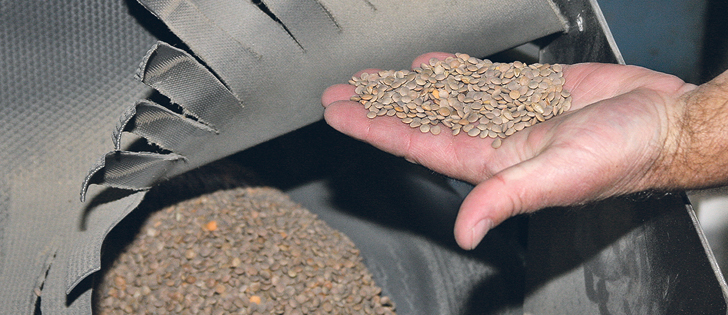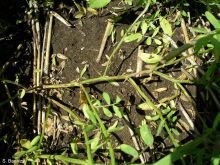Canada says it can’t fumigate pulse shipments domestically, and the requirement isn’t necessary anyway
India’s three-month renewal of its fumigation waiver provides breathing room but is not the long-term answer Canada is seeking.
India announced the renewal one day before the previous extension expired March 31.
“It’s an important announcement because we do have Canadian, both bulk and container, shipments that are en route,” said Gordon Bacon, chief executive officer of Pulse Canada.
The waiver allows shipments to be fumigated with methyl bromide in India instead of the port of export.
India insists that all shipments be fumigated because it is attempting to keep certain species of stem and bulb nematode from entering the country and attacking its onion and garlic crops.
Read Also

Environmental farm group has Ottawa’s attention
In 2021, Farmers for Climate Solutions published a report on how Canada should reduce emissions from agriculture. Not long after, the federal government implemented most of the recommendations in the report.
Canada is incapable of properly fumigating shipments because it is too cold, so without the waiver, exporters would have to find another market for their product or stop on the way to India to fumigate in a place such as Singapore, which is an expensive proposition.
India accounted for one-third of Canada’s pea and lentil exports in 2016, worth $1.1 billion.
The government had been granting six-month extensions to the waiver since 2004 until earlier this year, when India’s plant quarantine directorate announced it would no longer be providing extensions.
Canadian exporters contend the policy change was made to curry favour with the country’s 119 million farmers.
“We view this matter as politically motivated by the Indian government, in part to support their local production and to try and show the market they’re not dependent on imports,” Murad Al-Katib, president of AGT Food and Ingredients, recently told investment analysts.
Bacon said the three-month waiver is barely long enough to cover the lead time of getting product to India. The sailing time alone is 45 to 65 days, so it doesn’t provide much assurance to exporters.
Canada is seeking a permanent solution to the fumigation issue. It has submitted a data package to Indian authorities contending there has been no sign in Canadian grain shipments of the type of nematode it is worried about.
“Exports of pulses from Canada do not pose material risk to Indian plant protection and quarantine concerns,” said Bacon.
He said there needs to be a decision on the Canadian submission in the very near future because now is the time that exporters typically sign new crop contracts with Indian importers.
There is also some old crop business that occurs in the April 1 to June 30 time period, although not very much. In 2016, India imported five percent of its Canadian lentils and 14 percent of its Canadian peas during that three-month period.
There was confusion last week when India placed a 10 percent tariff on imported pigeon peas. Some in the industry thought the tariff would also apply to imported lentils, which have the same Harmonized System code.
“We have got clarification from the High Commission in Delhi,” said Bacon.
“It applies only to pigeon peas, or tur, and not to lentils.”
















